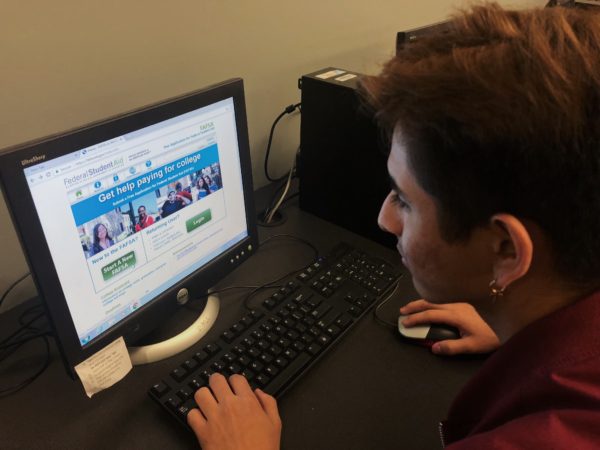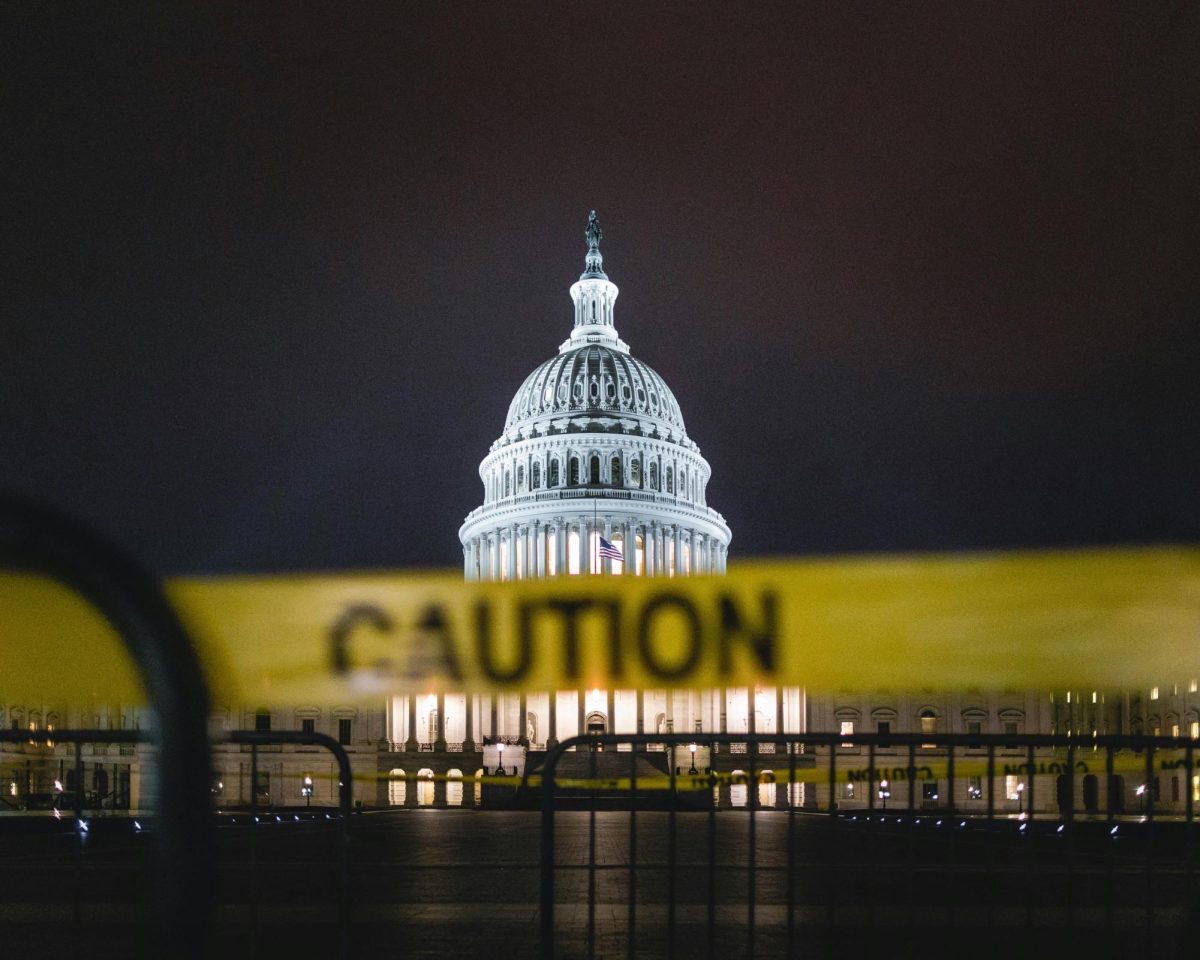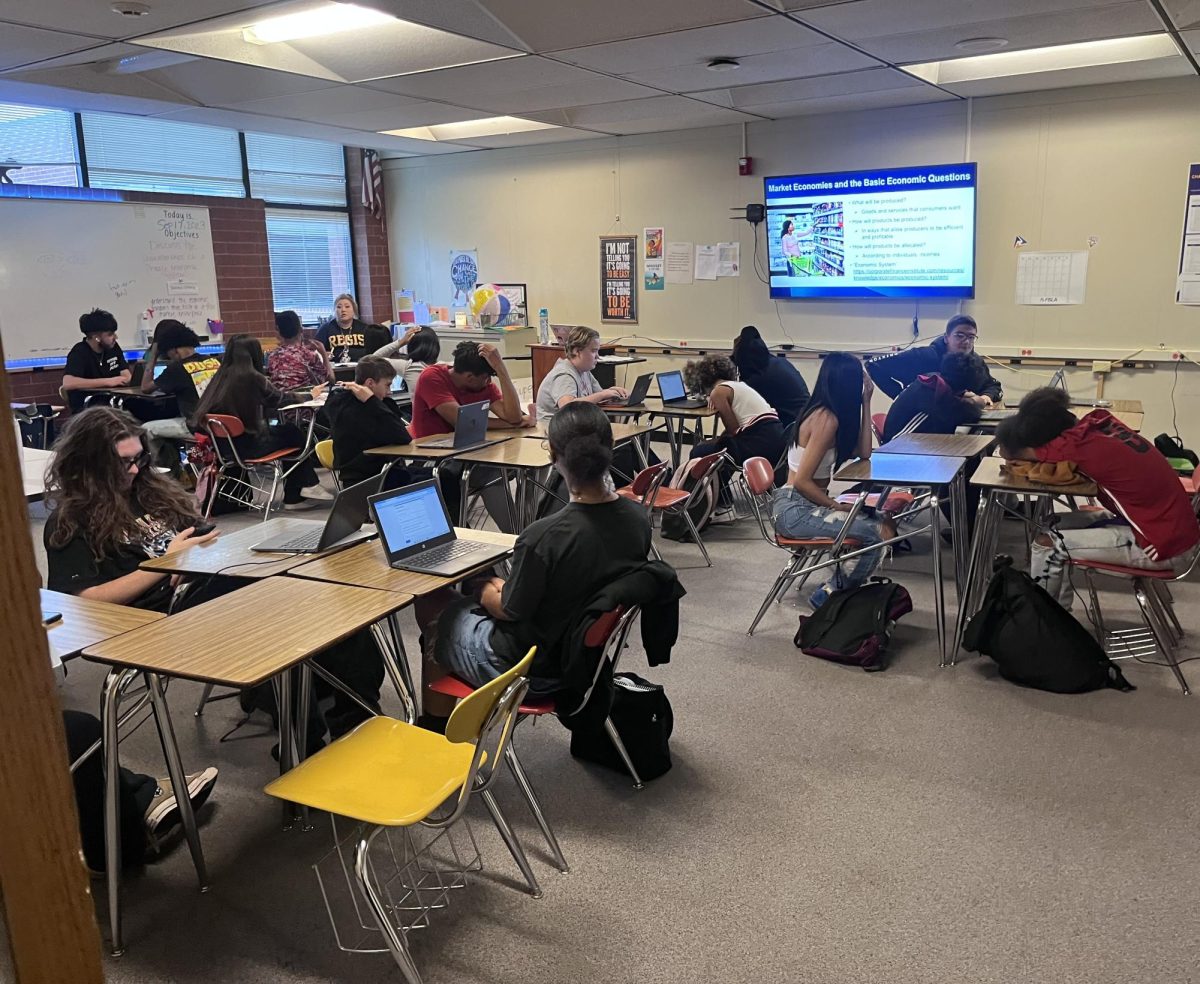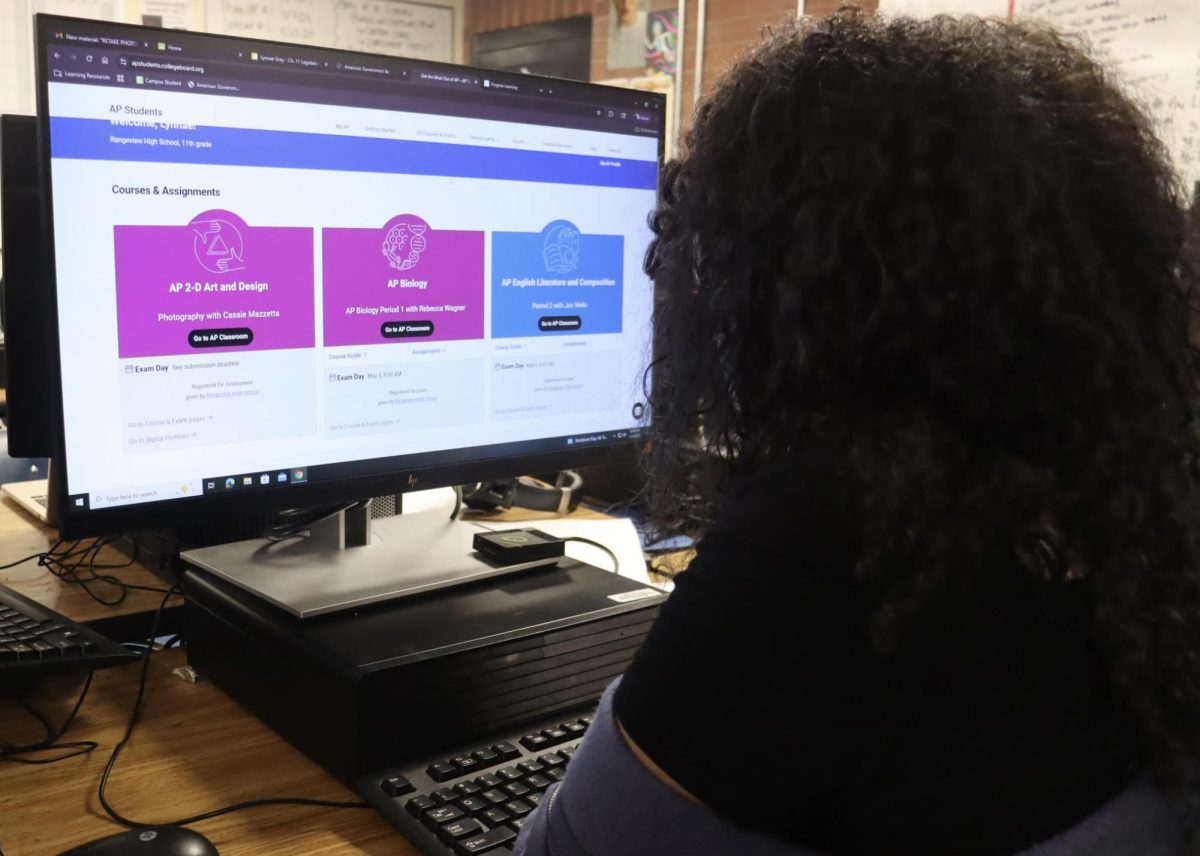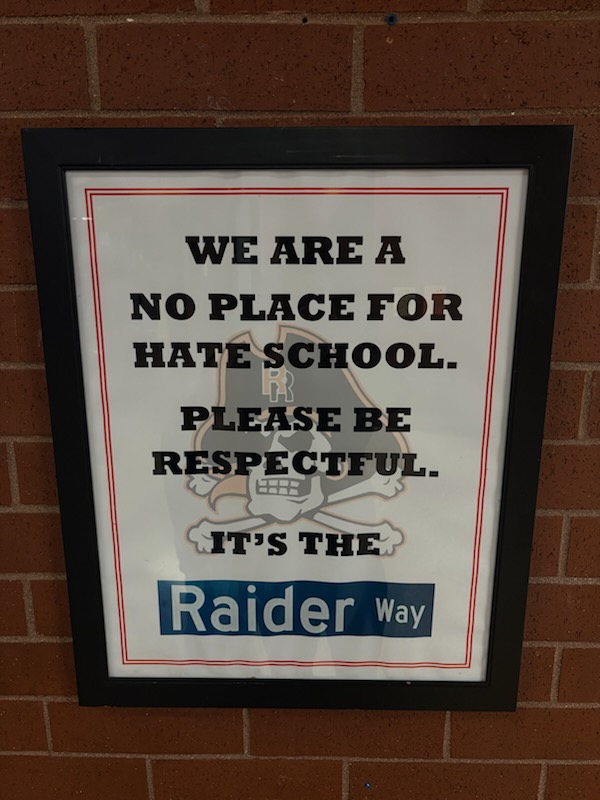Feature Photo By Jessica Rangel – Senior Elian Dominguez views the FAFSA website in the College and Career Center. FAFSA is a form that all upcoming college students must fill out to receive financial aid and the CCC is a good place to get help with financial aid.
Even before students enter their senior year, they are told hundreds of things that they are going to encounter and have to accomplish to possibly get a chance of being accepted into their dream school.
One of the most important things I was told was to complete FAFSA, the Free Application for Federal Student Aid, as soon as it was available. I was constantly hearing from countless adults and peers that it was the first step into getting any kind of financial aid. Knowing that my family alone would not be able to pay for my college education, I made it a priority to apply for anything that could, in any way, provide a relief to the weight on my parents’ shoulders.
Unfortunately, there was one major thing no one ever told me that I and many other children of undocumented immigrants would have to face.
I didn’t realize until my senior year came around and all the paperwork asking for not only my social security but my parents’ nonexistent social as well, that their lack of citizenship would affect the entire process.
After reality set in, a wave of anxiety flushed over me as I tried to figure out how I was going to pay for college. I was afraid of messing things up and filing things in wrong that could get my parents in trouble with the law. It was a whole new level of stress on top of everything I already had to worry about in my last year of high school. Soon enough I had to continue moving through the process keeping quiet about the fear lingering in the back of my mind.
Being a student in College Track, a program guiding high school students towards a higher education, I was privileged enough to have a set time where I could go in with my family and get help finishing the FAFSA application. Going in that day to the site I was nervous to have to explain to another person my situation and have to make something so simple for “normal” families into such a complicated procedure.

If I’m going to be honest, I was very embarrassed that my family and I were struggling to even make sense of what each question was asking when this was such an easy task for my peers and their parent’s. Seeing people next to us finish the application before us as I continued raising my hand each time my parents couldn’t understand the English words on the computer screen brought out all of my frustrations.
Eventually, after what seemed like hours, we were able to finish the lengthy application but, a panic still raided my thoughts as I wondered if I was putting my whole family in danger by sending off my FAFSA.
Slowly, I began to forget about my dreadful experience with trying to start financial aid. My focus switched to applying to schools, and once I started receiving my acceptances I felt more and more like maybe I had a chance at getting a higher education.
I was taking in all my glory and felt like I was getting somewhere until all of that hope and ambition quickly was torn down once again. From almost every school I applied to I was receiving emails that there was still another entire process to verify that my FAFSA was correct. This entailed having to send forms such as a CSS Profile, my parents and I’s W-2 reports, tax return transcripts, to many other things specific to certain schools.
That anxiety I had pushed down was creeping back into my body, and a flood of questions crammed into my brain. After already working so hard throughout the course of the year I felt defeated, reading once again that I had to prove my worth to schools to receive financial aid. It was exhausting having to get all the documents together that my family has never even heard of before.
I wondered who else was in my position, scrambling on their own to get everything together to present back to colleges.
Not only does this affect thousands of children with undocumented parents but, students from low-income backgrounds and even first generations students as well.
It is clear to me now from my experience why the rate at which students from low-income areas who actually end up going to college is extremely low. FAFSA and the entire verification process creates the issue of having to gather loads of paperwork that families in impoverished areas wouldn’t even have access to.
Eventually, students who are put in this type of setting give up the idea of even going to college knowing they won’t be able to receive financial aid without certain documents. I was one of those students and I was tired of feeling so incompetent to white American citizens with upper-class income to the point where I didn’t even want to try to attend college anymore. I was lucky enough to have people supporting me who continuously pushed me to get past this obstacle.
For the students that don’t have that luxury, it is time our government changes the way it provides financial aid for its’ college students. Not only does there need to be a change within our government but also America’s education system. There needs to be more talk about the gritty roadblocks that come up during senior year.
These topics are most people’s reality and it shouldn’t be taboo to speak of it. I don’t want to have to feel embarrassed anymore for not being the typical upper-class American family that lives and breathes higher education.
I know that coming from a first generation, undocumented family, everything I do after this point is going to be 10 times harder and I will have to persevere more than those around me to be able to compete and survive. My struggle has only proved to me further that there millions of students across the U.S going through the same thing as me and I’m here to let them know they aren’t alone. Don’t let the system break you. There will always be a way to achieve your aspirations no matter where you come from.
